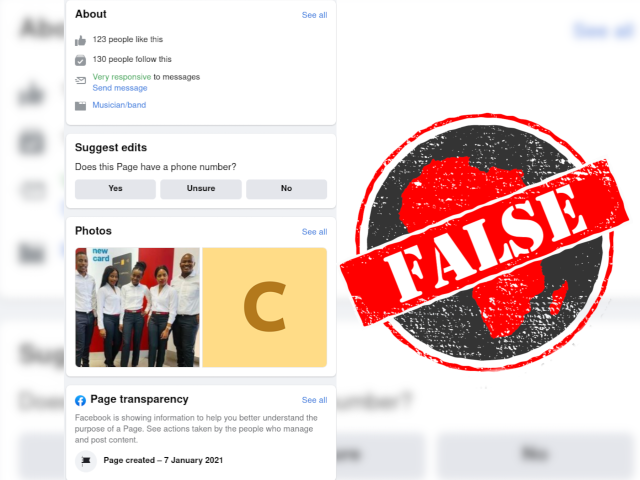IN SHORT: Job openings at the United Nations agency are coveted, but you are advised to steer well clear of this dubious “application” portal.
The United Nations Children's Fund (Unicef) has launched a recruitment portal in Nigeria, according to posts circulating on social media.
The post has been shared on various pages on Facebook. Subscribers also sent it to Africa Check on WhatsApp for verification.
“Welcome to UNICEF application form portal. Click on the link below to start your registration. All nationalities are eligible to apply,” the post read.
But does this application portal belong to Unicef?

Typical job scam
The link takes you to a web page with no heading. This is not typical of an international organisation such as Unicef.
An online application form asks for information about those wishing to apply, including contact details and educational qualifications.
After filling in the form, the site instructs users to share the link with five groups or 15 contacts on WhatsApp.
This is an example of engagement bait – posts that ask people to interact by liking, commenting or sharing. The more people do this, the greater the reach of the Facebook page.
Africa Check has uncovered various job and grant scams on social media. Read our guide on how to identify Facebook scams and avoid them.
Republish our content for free
For publishers: what to do if your post is rated false
A fact-checker has rated your Facebook or Instagram post as “false”, “altered”, “partly false” or “missing context”. This could have serious consequences. What do you do?
Click on our guide for the steps you should follow.
Publishers guideAfrica Check teams up with Facebook
Africa Check is a partner in Meta's third-party fact-checking programme to help stop the spread of false information on social media.
The content we rate as “false” will be downgraded on Facebook and Instagram. This means fewer people will see it.
You can also help identify false information on Facebook. This guide explains how.





Add new comment